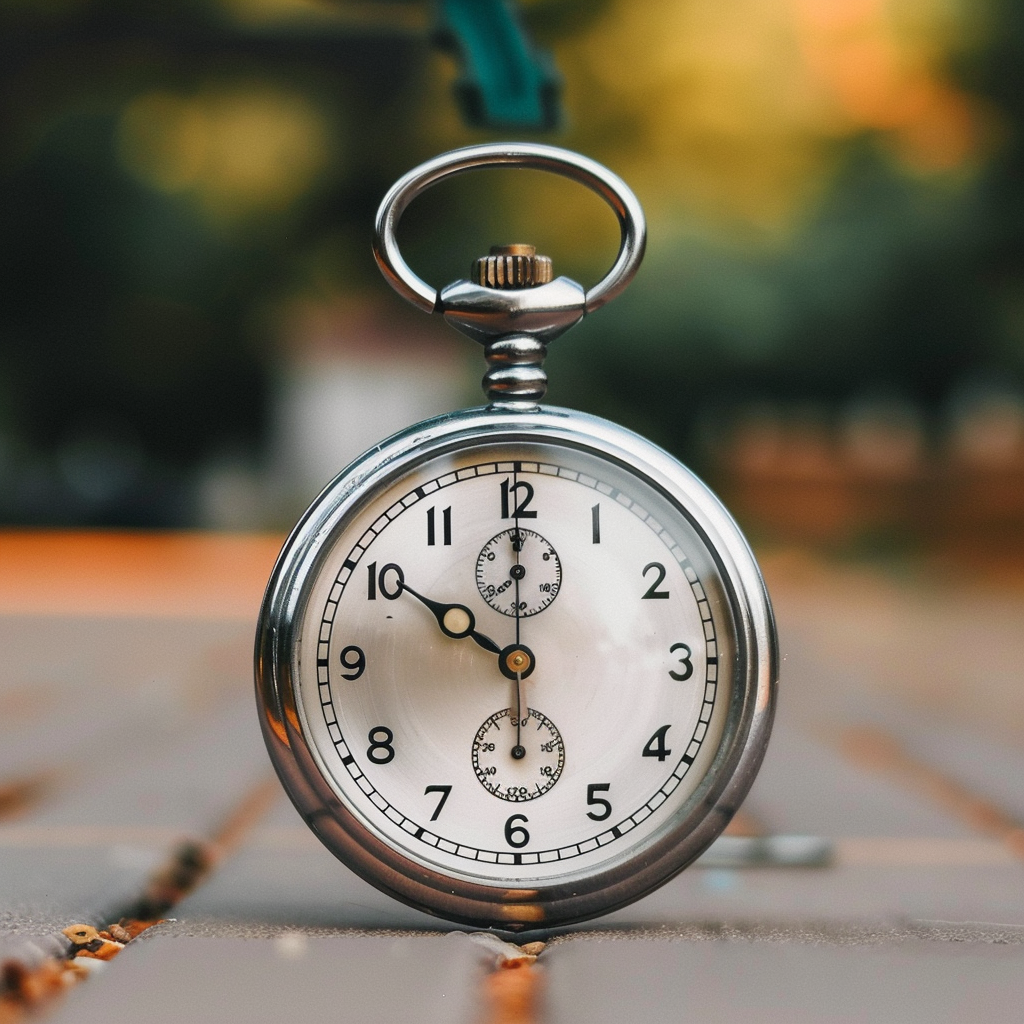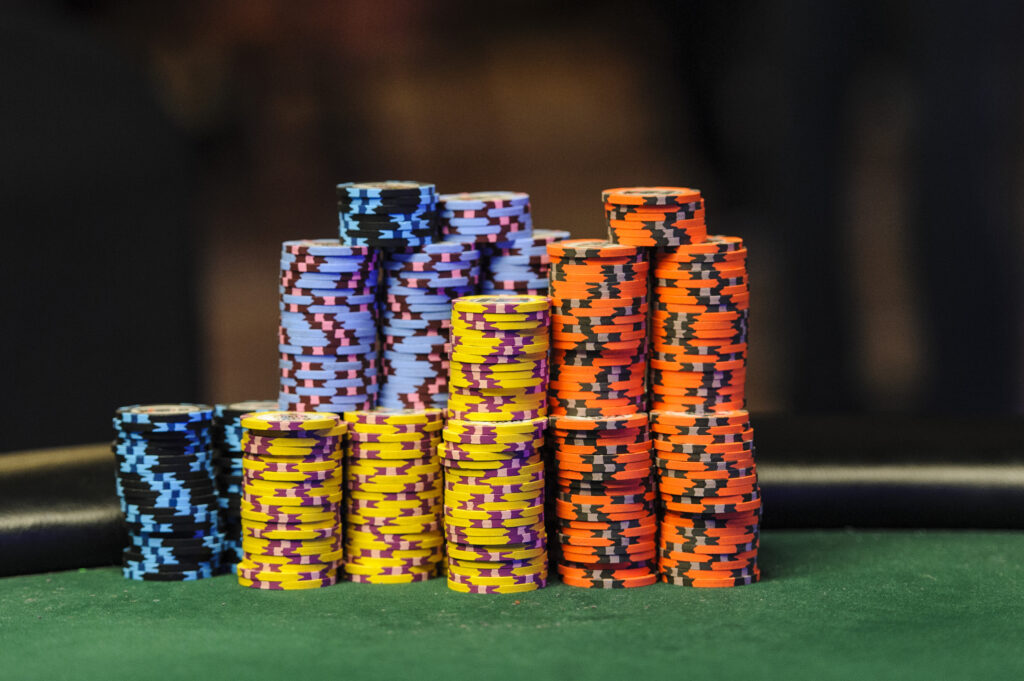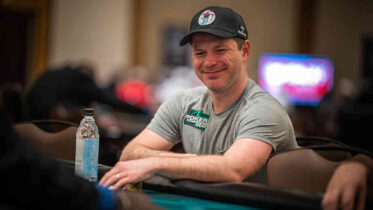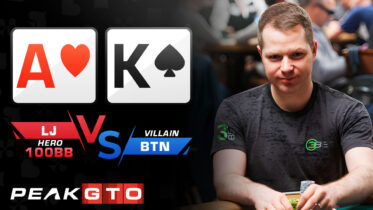Poker is a social game and one that’s often played by as many as ten players at the same table, all wagering real money on the outcome of the game. While the rules of poker are quite straightforward, some situations don’t have clear solutions in the rules of the game, and that falls into the category of poker etiquette situations.
The poker etiquette rules are quite complex but necessary, and learning them will help you navigate the live poker setting in the best possible way.
While you may often see players breaking these etiquette rules when you play in a live poker room, remember that following the etiquette will make you more liked and respected by your peers, the staff, and everyone else involved in the game.
There are many rules of poker etiquette that I could bring up, but in this short guide, I will look at some of the most important ones and teach you how to act in some live poker situations that come up all the time and that many players simply get wrong.
#1 – Act Fast When Possible
Even as I write this, I can see a number of poker players rolling their eyes at me for asking them to act fast, as they think taking their sweet time on every decision gives them an edge over their opponents.
In truth, there are plenty of situations in live poker when you may need to take as many as several minutes to make your decision, but these times usually occur on turns and rivers and rarely in the early betting rounds.

However, plenty of players love to take a full minute every time the action is on them, even if they look down at cards that they know they will be folding.
While there may be some slight theoretical edge you may gain from always taking the maximum amount of time possible, there is also plenty to be said for not wasting everyone’s time and being considerate towards other players.
If you are the only one at the table taking a minute to fold your cards before the flop, no one will like you, and you will not really gain too much of an edge at all.
In fact, some of the better players might end up going the extra mile to try and stack you in particular if they notice you stalling all the time, and that’s just one of the many reasons not to waste time at the poker table.
When the action is on you, only take time if you need it, or take a few seconds for the purposes of balance, but never waste unnecessary time when you know what you are going to do.
#2 – Don’t Look for Angles
Angle shooting is an umbrella term that encompasses many different actions that don’t exactly break the rules of the game but go against the poker etiquette rules.
Throwing in a big chip and claiming you made a mistake, discussing the strength of your cards during an active multi-way pot, or trying to kill someone’s hand over a slight mistake they made are all examples of angle shooting.
While everyone’s goal at the poker table should be to win, you should also look to do it fairly and honestly and without pulling any tricks.
In fact, angle shooters can often be penalized in poker tournaments for their stunts, and being a famous angle shooter in your poker room is the worst thing for your reputation.
Never shoot angles on purpose, and if a situation arises in which it appears you are shooting an angle, explain your position and make sure everyone knows your intention.
On the other hand, if you are baselessly accused of angle shooting by a known angle shooter, don’t worry too much about it, as everyone else will likely know what’s going on to begin with.
#3 – Don’t Slow Roll
Slow rolling is the art of taking forever to make the call with a hand you know is best, only to rub it in someone’s face or make someone look like a fool.
While there are a few big-name players who slow-roll their opponents quite often, the act itself is widely considered highly unethical and should be avoided at all times.
Not only is slow rolling a needless waste of everyone’s time, but it is also highly disrespectful towards the player you are slow rolling, and it adds no advantage to you.
Regardless of who the player is and what they have done to you, make sure to act quickly when there is no further action, and you know you have won. The pain of losing a big pot will be enough without any additional insult.
#4 – Stack Your Chips Appropriately

Another thing that is not a part of the official poker rules but is an important part of poker etiquette is the way you stack your chips.
While complete amateurs get away with stacking their chips any which way, experienced players are expected to stack their chips correctly.
What I mean by correctly is in a stack of 20, with big chips on top or in front of the small chips, and without mixing the colors.
Appropriate chip stacking will help others know how many chips you have, speed up the game, and ensure that you are not accidentally angle-shooting your opponents.
While cash game players often ignore this poker etiquette rule, stacking chips the right way is important in both cash games and tournaments, although bigger stacks of 40 or 50 chips are often the norm in deep-stacked live cash games.
#5 – Be Gracious in Victory and Defeat
Poker rooms can get quite rowdy at times, and more often than not, the chaos ensues when a player loses or wins a big pot.
Poker etiquette cuts both ways when it comes to being gracious, as it is critical to remain composed both when you are winning big and when you are losing.
When you win a big pot or are on a massive heater, try not to talk too much, be aware of the tone of your voice, and try not to give anyone any lectures as to how they should have played their hand.
On the other hand, if you are losing big, do your best to keep your emotions in check, never throw cards or chips and the dealer or other players, and never raise your voice too much or swear out loud.
While we all make mistakes and sometimes do things in the heat of the moment, acting emotionally at the poker table too often will make you look like a clown.
If you feel like your emotions are getting the best of you, leave the table and come back when you are composed and ready to play the game without unnecessary outbursts.
#6 – Wait for the Hand to Finish
There is nothing worse than being in a hand, pulling a big bluff, and hearing another player at the table who is not involved in the hand say something like: “Well, I folded the Ace of clubs.”
While players often do this completely oblivious of what it could mean for other players, it can literally make the difference between someone winning or losing a monster pot.
For instance, the Ace of clubs I mentioned above might be the nut flush card, and another player might have a much easier time calling you with a weaker hand if they know the Ace of clubs can’t be in your hand.
For this reason, and many others, you should never discuss what you folded or anything else about an active hand until the moment the hand is over and cards are in the muck.
Even when two players go to showdown and turn over AK and QQ, saying “I folded a King” out loud, whether it’s true or not, is considered bad poker etiquette.
#7 – Don’t Hit and Run

Hit and Run is a name poker players use to describe a player coming into a cash game, winning one or two big pots, and immediately cashing out their chips.
While it is technically allowed in public poker games, a hit-and-run is considered an unethical way to play poker, although many professional poker players don’t care too much if you do it.
Recreational poker players hate seeing a Hit and Run as they feel you have swindled them out of their money without giving them a chance to win it back.
So, the next time you sit down at the poker table and triple up right away, stick around for a while, play some more hands, and get involved even as the big stack.
At the end of the day, the results will even out, and you sticking around won’t hurt you too bad, while your reputation will stay intact, and you won’t be the player no one enjoys playing with.
#8 – Don’t Collude
Collusion is the act of playing “in tandem” with other players in order to help yourself and that player at the expense of others.
Collusion is especially unacceptable in tournament poker but is equally as bad in any multi-way pot in a cash game.
I have seen collusion in poker tournaments more often than I care to admit, and it is one of the worst things you will see in a live poker room.
What’s worse than players constantly dumping chips to each other, checking it down to a showdown with monsters, and deliberately making sure they don’t bust their buddies from the event?!
If you enter a poker game, leave all friendships at the doorstep, but don’t forget to pick them back up the moment cards are in the muck and the action is over.
Don’t expect your friends to soft-play you, don’t soft-play them, and forget about collusion unless you want to be both penalized by the floor man and hated by every other player in the room.
#9 – Tip When Tips Are Due
Tipping is another highly contentious issue in some poker circles, and there are definitely players who never tip, as well as those who tip way too much.
If you want to follow proper poker etiquette, don’t fall into either one of these groups and tip reasonably, at the right time, and without flaunting it.
If you win a poker tournament, a tip of anywhere up to 5% is considered gracious, although this certainly doesn’t apply to the biggest scores out there.
In cash games, tipping when you win a big pot or throwing a few dollars the dealer’s way, even when you are losing, will be highly appreciated.
On the other hand, if you find yourself at a table with a drunk millionaire throwing hundreds at the dealer and making you feel bad, completely ignore the joker and keep doing what proper poker etiquette demands.
#10 – Be Considerate to Others
Live poker rooms are often crowded, with dozens or even hundreds of people in the same space and other players sitting very close to you.
I love my personal space as much as the next guy, but it is important to understand that in a poker room, we each only get so much of it, and we need to be considerate of others.
Make sure to sit in your seat without taking up the space to the left or right of you, be careful with your hand movements and gestures, and above all, make sure to show up to play poker in clean clothes, showered, and groomed.
While there is no rule saying you have to shower after your workout and before a poker session, showing up sweaty and sitting in your seat for hours will make other players uncomfortable and make you seem like a slob.





